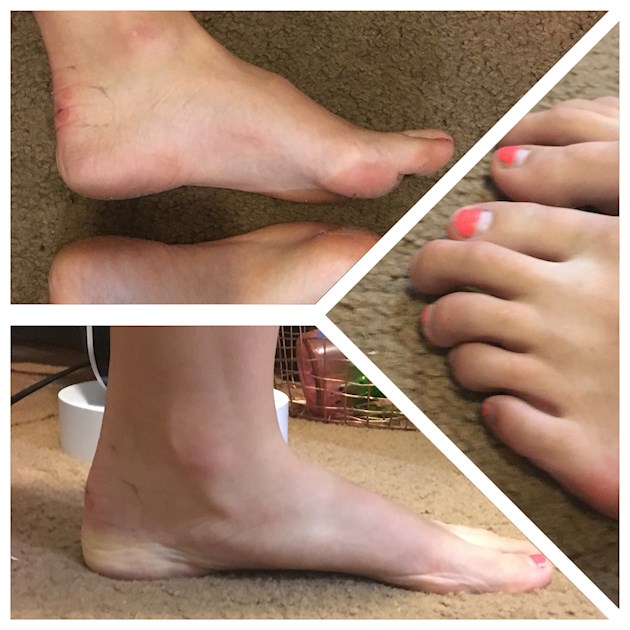Hi everyone, I am sick of being misdiagnosed and I'm starting to harbor some anger towards doctors and medical professionals (despite being one myself!). I have recently had some deterioration in a condition which was previously labeled a viral inflammation of my sacral nerve roots (causing lower limb paralysis, paraesthesias and neuropathic pain, predominantly on the left side). The doctors were never certain this was the real culprit.
My feet have always pronated (rolled in), but lately I've noticed an extreme worsening of this as well as increasing in the curling of my toes. I have also had more fatigue and weakness than usual, and badly sprained my right ankle for absolutely no reason about 6 weeks ago.
My dad also seems to have very similar looking feet to mine, which have only gotten worse over time. He has always been awkward on his feet, and has a very stiff gait when he walks and runs, lifting his feet up quite high out the front instead of getting toe push off. Dad tends to sprain his ankles at least as often as me, if not more.
My grandad (dad's dad) was physically disabled with "post polio syndrome". I am not so sure this is what he really had, as the history of him having polio was unclear. He was mobile most of his life with calipers (KAFO's) and orthopaedic footwear and only required a wheelchair in later life.
I am asking the experts in CMT - people with the condition - what you think. Does this look like CMT? I'm 24 years old and quite fit and active. I run, bike and swim quite easily but I'm just getting a lot more muscle fatigue, cramping, and having difficulty walking without supportive shoes. I seem to be slowly losing strength despite loaded strength training. I haven't lost a lot of sensation except at the very tips of both my big toes.

 I am also in Australia! My feet have a very high arch when they are resting and the plantar fascia (tissue band underneath) is quite tight. However, because all the muscles in my feet are extremely weak and my joints are very hypermobile, they flatten completely when I am standing. This is what I have noticed has gotten worse lately - my inside arch now touches the ground! I have also noticed that my toes are curled a lot more when they are resting. They used to be flat to the ground. Thanks so much for your kind and informed feedback!
I am also in Australia! My feet have a very high arch when they are resting and the plantar fascia (tissue band underneath) is quite tight. However, because all the muscles in my feet are extremely weak and my joints are very hypermobile, they flatten completely when I am standing. This is what I have noticed has gotten worse lately - my inside arch now touches the ground! I have also noticed that my toes are curled a lot more when they are resting. They used to be flat to the ground. Thanks so much for your kind and informed feedback!